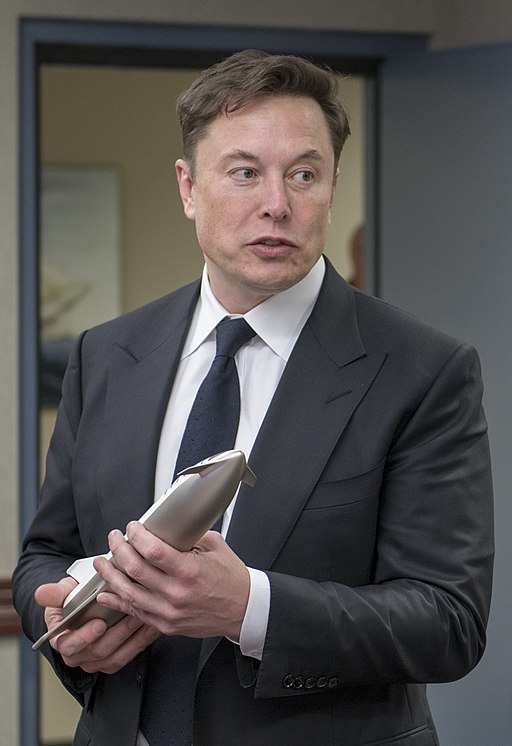The U.S. Federal Trade Commission (FTC) has weighed in on Elon Musk’s lawsuit to block OpenAI’s transition to a public company, highlighting legal doctrines that could support Musk's claims of anticompetitive practices involving OpenAI and Microsoft (NASDAQ:MSFT).
The FTC, while not taking sides, offered analysis that may aid Musk in a Tuesday hearing in Oakland, California. Musk, who co-founded OpenAI and now leads AI startup xAI, alleges that OpenAI violated antitrust laws by requiring investors to avoid backing rival AI firms. He also claims OpenAI’s board shared members with Microsoft, fostering conflicts of interest.
Microsoft declined to comment, while OpenAI has yet to respond. The FTC is separately investigating AI partnerships, including the Microsoft-OpenAI relationship, for potential antitrust violations and consumer protection concerns.
OpenAI argues Musk’s claims about board members are irrelevant, as Microsoft’s Reid Hoffman and Deannah Templeton no longer hold positions at OpenAI. However, the FTC noted that former board members may still possess sensitive competitive information and emphasized that observer status does not exempt directors from antitrust laws.
Musk also accuses OpenAI of organizing an investor boycott against its rivals, a claim the FTC acknowledged as legally viable even if the organizer is not a direct participant.
The case raises critical questions about the legality of AI industry partnerships and could set significant precedents. As the FTC investigates broader practices in the sector, the outcome of this lawsuit could shape the future of competition and collaboration in artificial intelligence.



 Federal Judge Signals Possible Dismissal of xAI Lawsuit Against OpenAI
Federal Judge Signals Possible Dismissal of xAI Lawsuit Against OpenAI  Trump Backs Nexstar–Tegna Merger Amid Shifting U.S. Media Landscape
Trump Backs Nexstar–Tegna Merger Amid Shifting U.S. Media Landscape  Alphabet’s Massive AI Spending Surge Signals Confidence in Google’s Growth Engine
Alphabet’s Massive AI Spending Surge Signals Confidence in Google’s Growth Engine  Nintendo Shares Slide After Earnings Miss Raises Switch 2 Margin Concerns
Nintendo Shares Slide After Earnings Miss Raises Switch 2 Margin Concerns  SoftBank Shares Slide After Arm Earnings Miss Fuels Tech Stock Sell-Off
SoftBank Shares Slide After Arm Earnings Miss Fuels Tech Stock Sell-Off  Jerome Powell Attends Supreme Court Hearing on Trump Effort to Fire Fed Governor, Calling It Historic
Jerome Powell Attends Supreme Court Hearing on Trump Effort to Fire Fed Governor, Calling It Historic  Federal Judge Blocks Trump Administration Move to End TPS for Haitian Immigrants
Federal Judge Blocks Trump Administration Move to End TPS for Haitian Immigrants  OpenAI Expands Enterprise AI Strategy With Major Hiring Push Ahead of New Business Offering
OpenAI Expands Enterprise AI Strategy With Major Hiring Push Ahead of New Business Offering  New York Judge Orders Redrawing of GOP-Held Congressional District
New York Judge Orders Redrawing of GOP-Held Congressional District  Citigroup Faces Lawsuit Over Alleged Sexual Harassment by Top Wealth Executive
Citigroup Faces Lawsuit Over Alleged Sexual Harassment by Top Wealth Executive  Panama Supreme Court Voids CK Hutchison Port Concessions, Raising Geopolitical and Trade Concerns
Panama Supreme Court Voids CK Hutchison Port Concessions, Raising Geopolitical and Trade Concerns  California Sues Trump Administration Over Federal Authority on Sable Offshore Pipelines
California Sues Trump Administration Over Federal Authority on Sable Offshore Pipelines  U.S. Condemns South Africa’s Expulsion of Israeli Diplomat Amid Rising Diplomatic Tensions
U.S. Condemns South Africa’s Expulsion of Israeli Diplomat Amid Rising Diplomatic Tensions  US Judge Rejects $2.36B Penalty Bid Against Google in Privacy Data Case
US Judge Rejects $2.36B Penalty Bid Against Google in Privacy Data Case  SpaceX Reports $8 Billion Profit as IPO Plans and Starlink Growth Fuel Valuation Buzz
SpaceX Reports $8 Billion Profit as IPO Plans and Starlink Growth Fuel Valuation Buzz  Sony Q3 Profit Jumps on Gaming and Image Sensors, Full-Year Outlook Raised
Sony Q3 Profit Jumps on Gaming and Image Sensors, Full-Year Outlook Raised 































